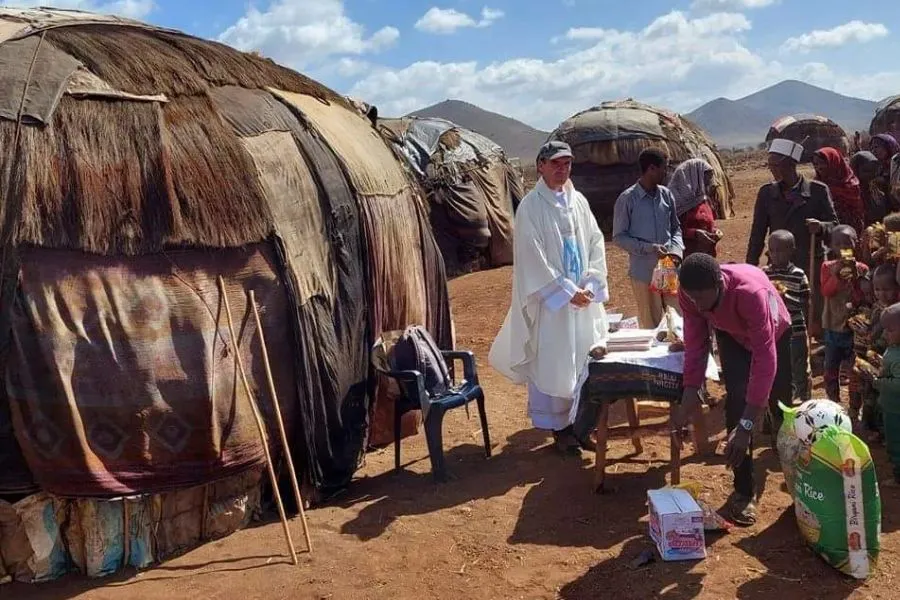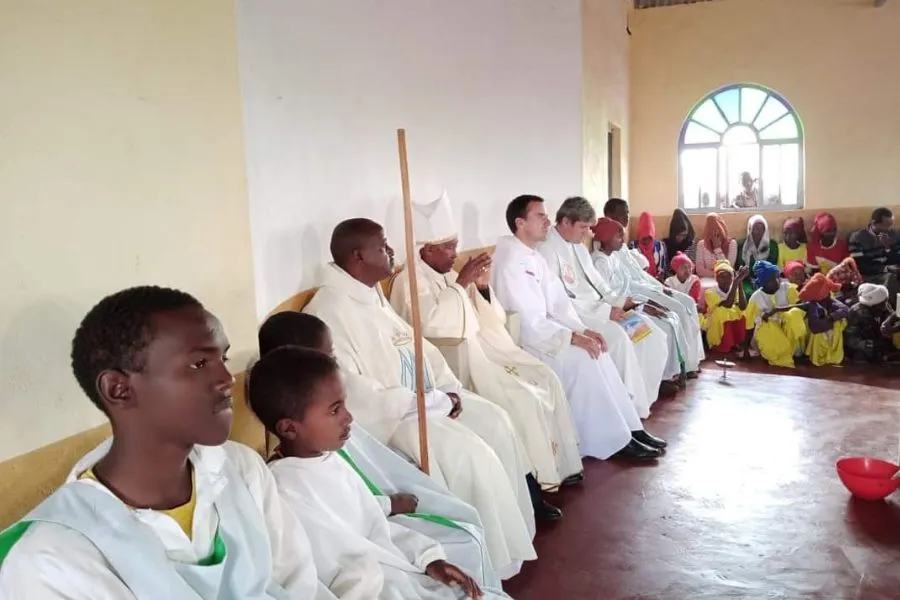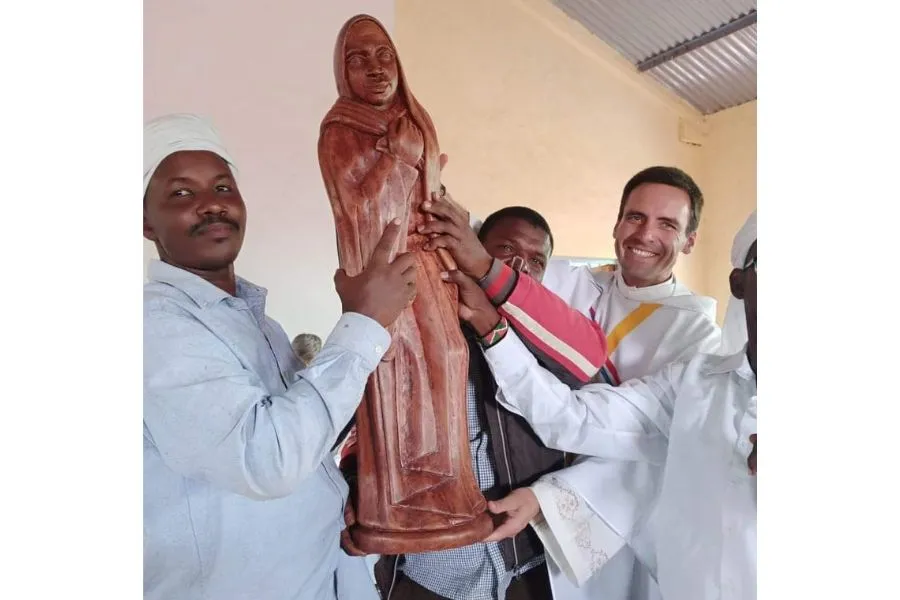 Credit: Fr. Aurelian Herciu
Credit: Fr. Aurelian Herciu
The challenges are many, Fr. Aurelian tells ACI Africa, and explains, “The people here are nomads. And this makes it difficult for them to follow through to the completion of their Catechesis. One day, you meet a community pitching a tent by the roadside and the next time you visit them, you find them gone. They are in constant search for water and grass for their livestock.”
“We have built schools for their children but they are hardly used because their families are constantly on the move,” he says, echoing the struggle that Paolo, Fr. Bartolomeo Venturino, Fr. Bartolomeo Ririno, were faced with when they arrived in Marsabit from Italy.
 Credit: Fr. Aurelian Herciu
Credit: Fr. Aurelian Herciu
Residents of Marsabit are also very poor, Fr. Aurelian says, and adds, “We try to take care of families by giving them water which is very scarce here, and also food. We give them food to feed their faith. We know that faith has to come through a full stomach.”
(Story continues below)
Ethnic clashes are rife in Marsabit, most times pitting one pastoralist community looking for water against another.
On behalf of the Roman Catholic Diocese of Bucharest, which is on the Romanian mission in Hurri Hills, Fr. Aurelian is involved in the project "Kenya - water for the people of the desert" in which a water tanker is purchased for residents of Chalbi desert.
The aim of the project is to reduce conflicts that are related to water scarcity.
At the beginning, the purchase was made monthly but through the support of the Catholic Diocese of Bucharest, has extended to the construction of water tanks, which are steadily filled.
The project has also extended to the provision of food and to the granting of school scholarships for students.
 Credit: Fr. Aurelian Herciu
Credit: Fr. Aurelian Herciu
There are also bandits on the roads, a situation that has made evangelization difficult in this place, Fr. Aurelian says, adding that he has been a victim of banditry. He says, “I can't mention names because it is too risky for me. I can't even mention places. But I was at the centre of an attack that forced me to move from my previous parish to where I am now.”
“Movement to this place was very difficult and cars had to be escorted by the military. Today, the heavy presence of the military has greatly improved the security here,” he says.
The Catholic Priest who arrived in Kenya for the first time in September 2014 also shared his experience in Ivory Coast, the only other African country he has been to. He spent six months in the West African country as a Seminarian.
 Credit: Fr. Aurelian Herciu
Credit: Fr. Aurelian Herciu
In terms of climate, both places he’s been to in Africa are dry, he says. Pastorally, the two countries are different, he says, and explains, “I saw more people offer to be Catechists in Ivory Coast on voluntary basis, just to selflessly support the Church.”
Sharing his inspiration to serve the Church in a remote, parched place, Fr. Aurelian says, “Coming to Kenya was my first time to be a missionary. I had learned a lot about this country from the priests who came to talk to us during our Seminary years about their experiences here. I came here to give to the people of God the faith I had received freely from my parents and from God.”
Agnes Aineah is a Kenyan journalist with a background in digital and newspaper reporting. She holds a Master of Arts in Digital Journalism from the Aga Khan University, Graduate School of Media and Communications and a Bachelor's Degree in Linguistics, Media and Communications from Kenya's Moi University. Agnes currently serves as a journalist for ACI Africa.




 Official opening of Transfiguration Hurri Hills Parish of Kenya's Catholic Diocese of Marsabit. Credit: Fr. Aurelian Herciu
Official opening of Transfiguration Hurri Hills Parish of Kenya's Catholic Diocese of Marsabit. Credit: Fr. Aurelian Herciu
 Credit: Fr. Aurelian Herciu
Credit: Fr. Aurelian Herciu Credit: Fr. Aurelian Herciu
Credit: Fr. Aurelian Herciu Credit: Fr. Aurelian Herciu
Credit: Fr. Aurelian Herciu Credit: Fr. Aurelian Herciu
Credit: Fr. Aurelian Herciu Credit: Fr. Aurelian Herciu
Credit: Fr. Aurelian Herciu


